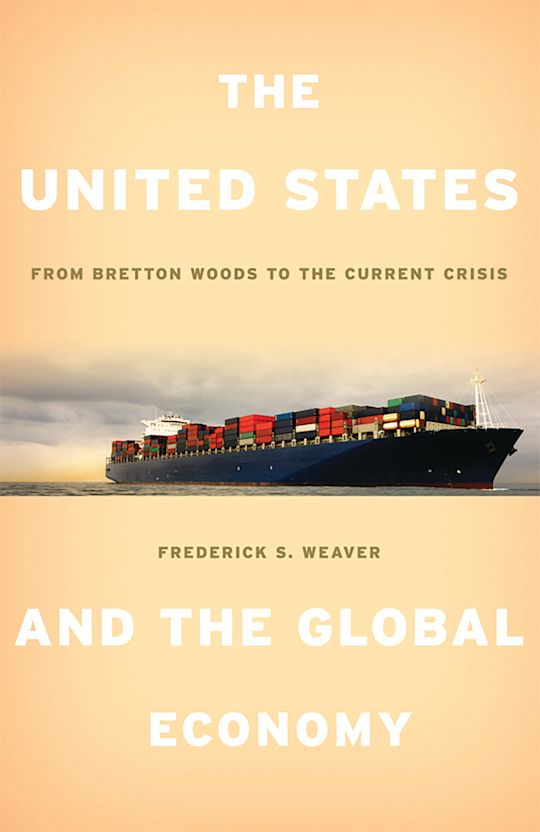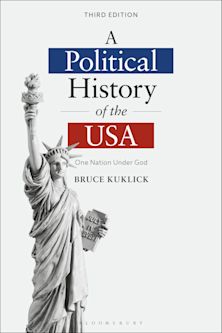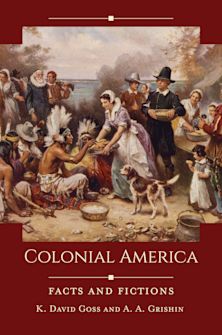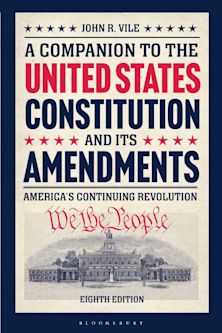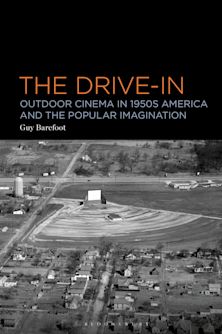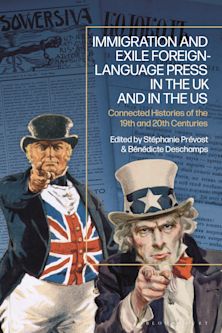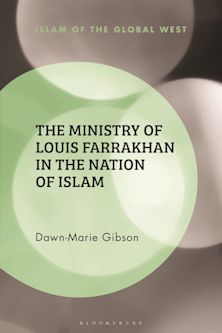- Home
- ACADEMIC
- History
- United States History
- The United States and the Global Economy
The United States and the Global Economy
From Bretton Woods to the Current Crisis
The United States and the Global Economy
From Bretton Woods to the Current Crisis
- Delivery and returns info
-
Free CA delivery on orders $40 or over
You must sign in to add this item to your wishlist. Please sign in or create an account
Description
Financial collapse. Global recession. The revival of free-market policies. Massive and increasing inequalities. Housing bubbles and record foreclosures. Severe strain in the European Union. Emergence of China and other major players on the international economic scene. Every day, media outlets bombard us with news and possible explanations for the financial, economic, and political crises. In The United States and the Global Economy, Frederick S. Weaver gives readers a concise introduction to the patterns of change in international financial and trade regimes since World War II in order to clarify recent global economic turmoil. Weaver has compiled a clear chronology of major events in the international economy to show how they have reflected and shaped changes in the domestic economy of the United States. Although U.S. dominance over the world economy is not as complete as it once was, U.S. domestic economic processes continue to have profound effects on global economic affairs.
The United States and the Global Economy is serious but not grim, and it familiarizes readers with the vocabulary of key elements of international economic analysis and their relationships, such as balances of trade and balances of payments, foreign direct investment and foreign portfolio investment, and the meaning of most-favored-nation agreements. The United States and the Global Economy is a concise, informative book that is of interest to anyone seeking to understand the current international economic and political disarray.
Table of Contents
Chapter 1: The Twentieth Century Quest for a Stable International Economy
Chapter 2: The U.S. Domestic Economy and the International Scene, 1945 to 1970s
Chapter 3: U.S. Political Shifts and beyond Bretton Woods, 1970s to 1980s
Chapter 4: The New International Economy and the Dissolution of U.S. Modern Times, 1970s to 1990s
Chapter 5: The Triumph of Free-Market Global Capitalism, 1990s to 2007
Chapter 6: The Twenty-First Century Quest for a Stable International Economy
Selected Readings
Product details
| Published | Oct 27 2011 |
|---|---|
| Format | Hardback |
| Edition | 1st |
| Extent | 192 |
| ISBN | 9781442208896 |
| Imprint | Rowman & Littlefield Publishers |
| Dimensions | 237 x 167 mm |
| Publisher | Bloomsbury Publishing |
About the contributors
Reviews
-
Weaver provides a clear, concise, and easily-digestible description of key moments in US economic history and the economic concepts that underpin these events. His work is a boon to all undergraduates struggling through a course in international political economy and to those teaching them.
Alexandra Guisinger, University of Notre Dame
-
History matters so we repeat it when we should and don't when we shouldn't. Weaver has done a great service by providing an accessible guide to recent US economic history (and its political drivers) in global context.
Kevin Gallagher, Boston University
-
Weaver’s book makes a contribution to public understanding of a complex subject. It offers an alternative interpretation to the doctrinaire writings of some mainstream economists who celebrate the benefits of free trade, wealth creation, and consumer gains while downplaying the costs of dislocations, volatility, and instability.
H-Net: Humanities and Social Science Reviews Online
-
To quickly get up to speed on today's global economy and its impact on the US, this interdisciplinary book is a good place to start. Its wide-ranging "Selected Readings and Websites" list will also help readers pursue specific topics of interest. Over the last 60 years, numerous international developments have affected the US's role in the global economy, and this volume focuses on how these events have shaped the US economy. Weaver (emer., Hampshire College) explains and analyzes the effects on the US of the emergence of the EU, OPEC policies, the Soviet Union's collapse, China's rise as the export superpower, and economic successes in South Korea, India, Brazil, and Southeast Asia. He examines the causes and consequences of the global crisis from the perspective of developed and developing countries, covering important themes such as the role of income distribution during this crisis; the global nature of the crisis; the systematic failure of the global financial systems; inadequacy of global governance institutions; and challenges presented by financial innovation. To make the book more accessible, Weaver provides readers with the vocabulary of key elements of international economic analysis and their interactions. A good supplement for international studies courses. Summing Up: Recommended. Lower-division undergraduate through professional audiences as well as general readers.
Choice Reviews
-
Explores the patterns of change in the international economy since World War II, focusing on the ways in which international events, issues, and relationships reflected and shaped changes to the U.S.economy.
Journal of Economic Literature
-
Weaver’s narrative of how the international economic order has changed since the end of the Second World War is often compelling and informative. The book is well paced and an easy read, giving readers without background knowledge in economic or international affairs a good starting point to understand the rapid changes in the international economy. Weaver has the ability to seamlessly define and discuss the sometimes confusing jargon of international economics and provides throughout the book helpful side notes that add to the narrative but do not unnecessarily distract the reader from the book’s core insights.
E-International Relations








